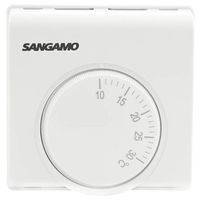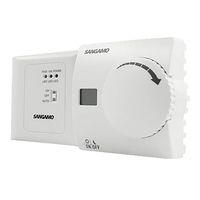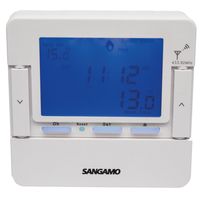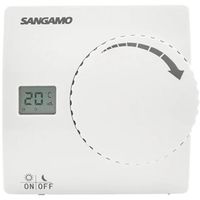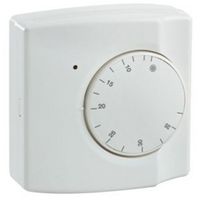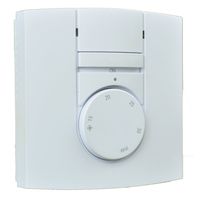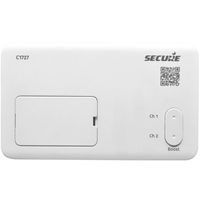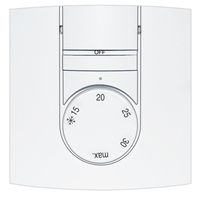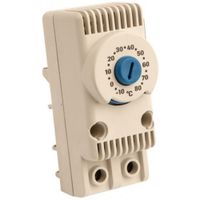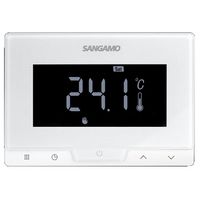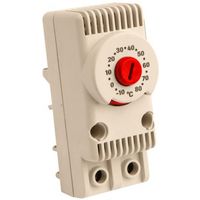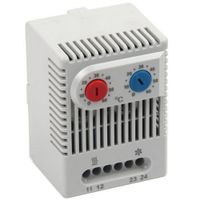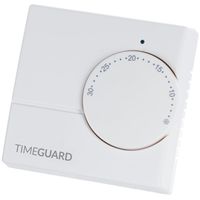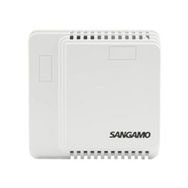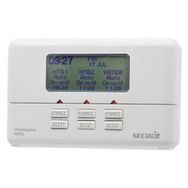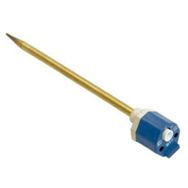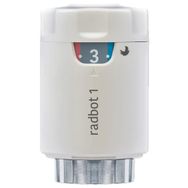Room Thermostats
Room thermostats are a vital part of your home heating system. The room thermostat, also known as a central heating thermostat, detects the temperature of the air in your home and communicates with the central heating system to turn the heating on when the room is cold and off when the desired temperature is reached.
A room thermostat can help to keep your home at a comfortable air temperature all year round and save money on heating costs.
We have a range of programmable room thermostats from leading brands at YESSS Electrical, giving you numerous options.
For homes with system boilers and hot water cylinders, integrating the thermostat with thermostatic radiator valves can provide even greater control.
Shop room thermostats today and get free UK delivery on orders over £50 (excluding VAT).
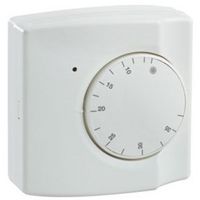
Mechanical Room Thermostat, Break on Rise, 5°C to 35°C, 83mm x 83mm x 34mm, White
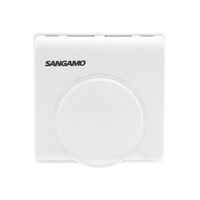
Tamperproof Mechanical Room Thermostat
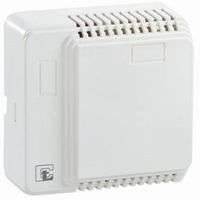
Mechanical Room Tamperproof Thermostat, Changeover Contact, 5°C to 35°C, 83mm x 83mm x 34mm, White
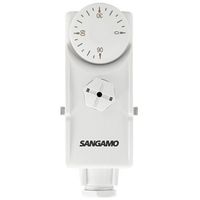
Automatic Hot Water Tank and Cylinder Thermostat, 0°C to 90°C, White, IP40
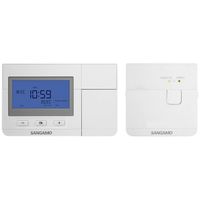
Wireless Thermostat with Programmable Schedules and Digital Display, 5°C - 35°C, White, IP30
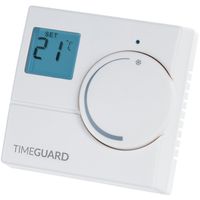
Digital Electronic Room Thermostat, White
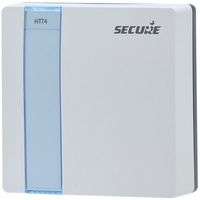
Mains Operated Tamper Proof Room Thermostat
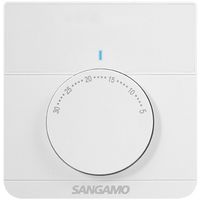
Electronic Room Thermostat, 5°C - 30°C, White
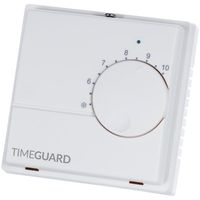
Electronic Frost Thermostat with Tamper Proof Cover, White
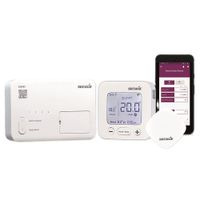
4 Channel Receiver with Programmable Thermostat Display

Tamper Proof Room Thermostat, White
FAQs
What is a room thermostat, and how does it work?
A room thermostat is a device designed to regulate the temperature of a specific area within your home. It works by sensing the room's current temperature and comparing it to your desired set temperature. If the room temperature drops below or rises above this setting, the thermostat will trigger your heating system to adjust accordingly. In homes with advanced heating systems like underfloor heating or heat pumps, room thermostats are essential.
How can I program my thermostat to save energy?
Programmable thermostats allow you to set a schedule based on your routine. You can program the thermostat to lower the heat when you're away from home or asleep, and then adjust to your preferred temperature shortly before you return or wake up. This helps reduce energy consumption without sacrificing comfort. For smart heating systems, combining thermostat settings with a smart schedule can further optimise energy use.
Can I install a room thermostat myself, or should I hire a professional?
While some basic thermostats with a normal control dial can be installed by a knowledgeable DIY enthusiast, digital thermostats or wireless thermostats often require professional installation to ensure they are set up correctly and working optimally. This is especially true for setups that integrate with heat pumps, underfloor heating or complex boiler thermostat controls.
How often should I replace my room thermostat?
While there's no set rule, a good guideline is to consider replacing your room thermostat every 10 years, or sooner if you're experiencing problems like a cold house in the morning or uncomfortable temperatures and want to upgrade to a more advanced model. Upgrading to a smart thermostat can be perfect for improving energy efficiency in modern heating systems, including underfloor heating or homes using heat pumps.
Are room thermostats compatible with all heating systems?
Most room thermostats are designed to work with a variety of heating systems, but compatibility can vary depending on the specific model and system. Always check the product specifications or consult with a professional to ensure compatibility. For example, thermostats used with system boilers and hot water cylinders need to support zoning for precise temperature control.
What are the benefits of using a wireless thermostat?
Wireless thermostats offer the convenience of being able to adjust your home's temperature from anywhere in the house. A wireless room thermostat communicates with your heating or cooling system via radio signals, eliminating the need for hard-wired connections. This makes installation easier and allows for more flexibility in where the thermostat can be placed.
Do room thermostats come with warranties?
Our room thermostats come with a manufacturer's warranty that covers defects in materials and workmanship for a specified period. Warranty terms may vary by product, so it's essential to review the specific warranty information provided with your purchase. Smart heating thermostats often include extended warranties, reflecting their reliability in advanced heating applications.
Can I control my room thermostat remotely?
Smart thermostats connect to your Wi-Fi network, allowing you to adjust the temperature and settings from a smartphone app. If your current thermostat isn't smart, you might consider upgrading to one that offers remote control capabilities.
Visit our smart homes page for more smart thermostats and other smart home devices.
Can a room thermostat save me money on heating and cooling costs?
A room thermostat allows you to set schedules and adjust temperatures automatically, allowing you to have the heating off while you're out and on when you're at home. This is a great way to optimise your home or office's energy efficiency by minimising energy wastage and reducing energy costs.
How do I troubleshoot common issues with my room thermostat?
If you're experiencing issues with your room thermostat, start by checking the basics. Is the device powered on? Is the display clear and easy to read? If it's a wireless room model, is it within range of the heating or cooling system? If these checks don't resolve the issue, consult the manufacturer's troubleshooting guide or contact a professional for assistance. Issues in systems with hot water cylinders or heat pumps might require resetting both the thermostat and the main boiler thermostat.


